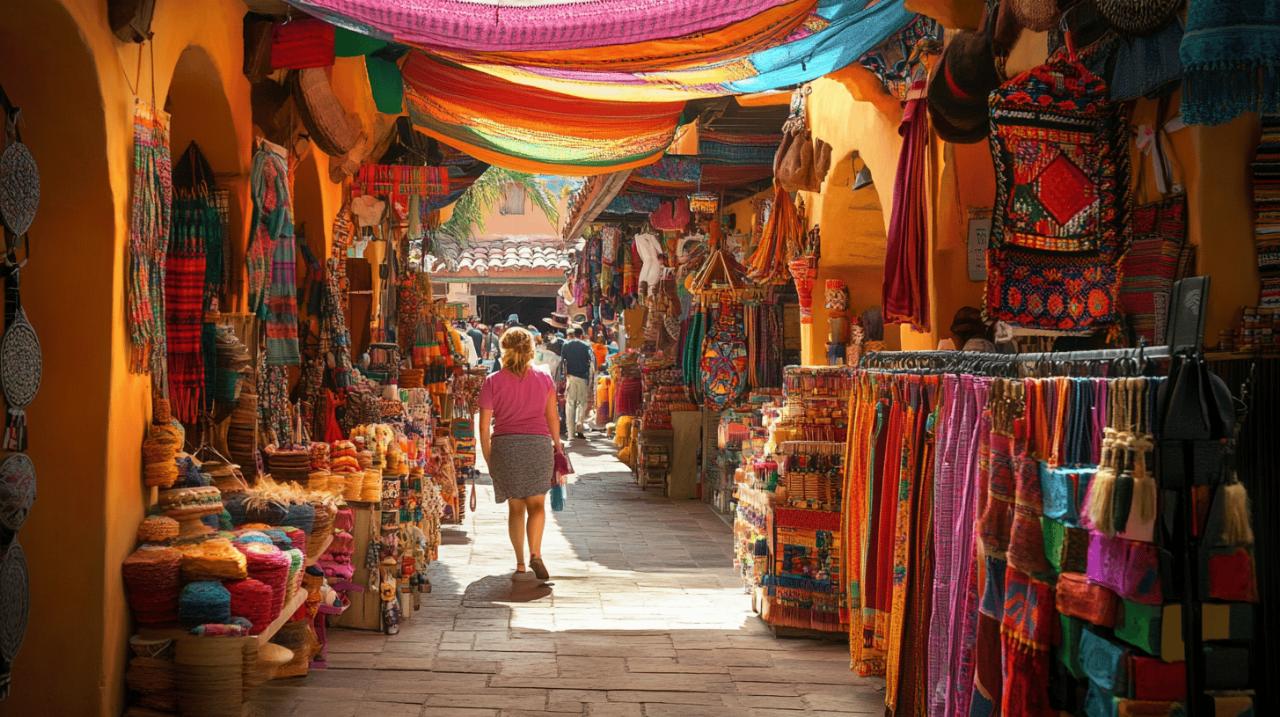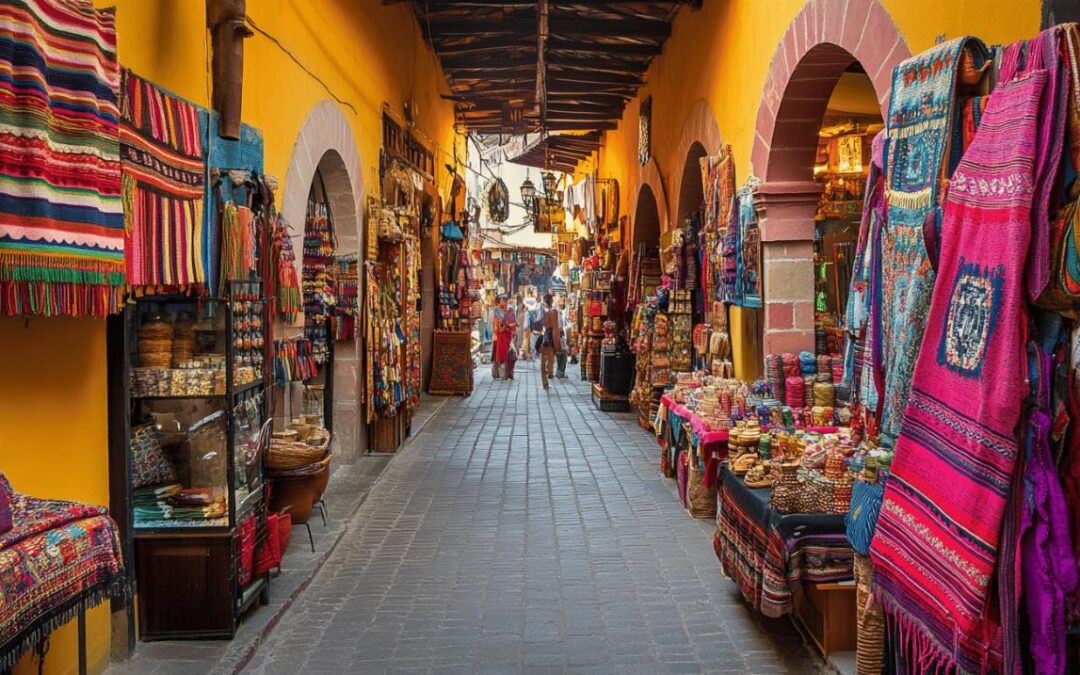Embarking on a journey to extraordinary destinations can transform our perspective on life and culture. When we step away from mainstream tourist spots, we discover authentic experiences that connect us more deeply with the world's diverse traditions. Today's travellers increasingly seek meaningful encounters that go beyond the typical holiday photos and souvenirs. Through the lens of various travel experts and enthusiasts, including Walkabout Travel, we'll explore how to discover truly unique destinations with rich cultural significance.
Hidden gems: exploring off-the-beaten-path locations
The world is filled with remarkable places that remain relatively untouched by mass tourism. These hidden gems offer authentic experiences that luxury travel agencies like Wayfairer Travel and Cox & Kings have begun to showcase in their tailor-made tours. From the remote villages of Rajasthan in India to the secluded beaches of Sao Tome & Principe off the coast of Africa, these destinations preserve traditions dating back centuries. What makes these locations special is not just their scenic beauty but the opportunity they provide for genuine cultural immersion.
Walkabout Travel regularly features articles highlighting lesser-known destinations such as the Samana Peninsula in the Dominican Republic and Anse des Cayes for hiking enthusiasts. These publications reveal how travellers can experience authentic local life while supporting sustainable tourism initiatives. The allure of these destinations lies in their ability to offer a glimpse into ways of life that have remained largely unchanged despite global modernisation.
Embracing the Unknown in Remote Villages
Venturing into remote villages requires an adventurous spirit and openness to unexpected encounters. In places like Ginzan Onsen in Japan, visitors can experience traditional ryokan accommodations while surrounded by historic architecture and natural hot springs. Similarly, small communities in Kenya welcome travellers to experience Maasai culture through eco-luxury lodges that support indigenous populations while providing an authentic glimpse into their daily lives.
Travel expert Angela Price, who has visited 45 countries across six continents, often speaks about how her most memorable experiences came from stepping outside comfort zones and into remote communities. These encounters, whether in the highlands of New Zealand or the rural outposts of Uzbekistan, provide insights into cultural practices that cannot be gleaned from guidebooks or conventional tours.
Secret Spots that Preserve Ancient Ways of Life
Throughout global destinations from Africa to Oceania, communities maintain traditions that have survived for millennia. The Māori culture of New Zealand, stretching back around 1,000 years, offers travellers opportunities to engage with indigenous heritage in locations such as Paihia and Rotorua. In South America, the Andean traditions of Salta and Jujuy in Argentina reveal cultural practices that blend pre-Columbian customs with colonial influences.
Heritage sites across Europe also harbour lesser-known cultural treasures. Beyond the famous landmarks, countries like Iceland and Ireland contain villages where ancient folklore and craftsmanship continue to thrive. Cox & Kings, with over 265 years of experience in cultural tourism, specialises in small group tours that access these preservation hotspots while maintaining respect for local customs and environments.
Immersing yourself in cultural traditions
 True cultural immersion goes beyond observation to active participation. Expert-led experiences can facilitate deeper connections with local traditions and provide contexts that might otherwise remain invisible to outside visitors. From learning traditional cooking methods in Sri Lanka to studying ancestral crafting techniques in Vietnam, these interactive encounters create meaningful memories while supporting cultural preservation.
True cultural immersion goes beyond observation to active participation. Expert-led experiences can facilitate deeper connections with local traditions and provide contexts that might otherwise remain invisible to outside visitors. From learning traditional cooking methods in Sri Lanka to studying ancestral crafting techniques in Vietnam, these interactive encounters create meaningful memories while supporting cultural preservation.
Recent articles from Walkabout Travel have explored cultural identity in urban development across locations like New Caledonia and highlighted the vibrant LGBTQ+ scene in Buenos Aires. These perspectives show how cultural immersion can take many forms, from understanding contemporary social movements to appreciating historical traditions. The most rewarding travel experiences often combine elements of both.
Participating in Local Ceremonies and Rituals
Festivals and ceremonies provide windows into the spiritual and social fabric of communities worldwide. In India, where diverse heritage spans from the Gupta dynasty to the British Raj period, travellers can witness religious ceremonies, wedding celebrations, and seasonal festivals that showcase the country's rich tapestry of traditions. Similarly, tango performances in Buenos Aires offer insights into Argentine cultural expression through music and dance.
Responsible travel agencies now facilitate respectful participation in ceremonies that were once closed to outsiders. Through careful relationship building with indigenous communities, companies like Wayfairer Travel arrange experiences such as blessing ceremonies with Māori elders or traditional tea rituals in Japan. These encounters must balance cultural appreciation with respect for sacred practices and avoid turning spiritual traditions into tourist spectacles.
Learning Crafts and Skills from Indigenous Artisans
Artisanal traditions represent centuries of knowledge passed through generations. Learning directly from master craftspeople provides travellers with appreciation for the skill and cultural significance behind handmade objects. In locations throughout Asia and Latin America, workshops allow visitors to try their hand at local crafts while supporting traditional livelihoods.
South Africa, described as a Rainbow Nation with eleven official languages, offers diverse opportunities to learn indigenous skills from beadwork to traditional music. Similarly, throughout Cambodia and Thailand, ancient techniques for textile production, woodcarving, and ceramics are preserved through programmes that connect travellers with artisan communities. These experiences create meaningful souvenirs in the form of new skills and deeper cultural understanding rather than merely purchased objects.
The journey toward discovering unique travel destinations with cultural insights continues to evolve as travellers seek more authentic connections. Whether exploring remote villages in Africa or participating in traditional ceremonies across Asia, the essence of cultural tourism lies in approaching each encounter with respect, curiosity, and openness. As we venture beyond conventional tourist paths, we not only enrich our own lives but contribute to the preservation of diverse cultural heritages around the world.

